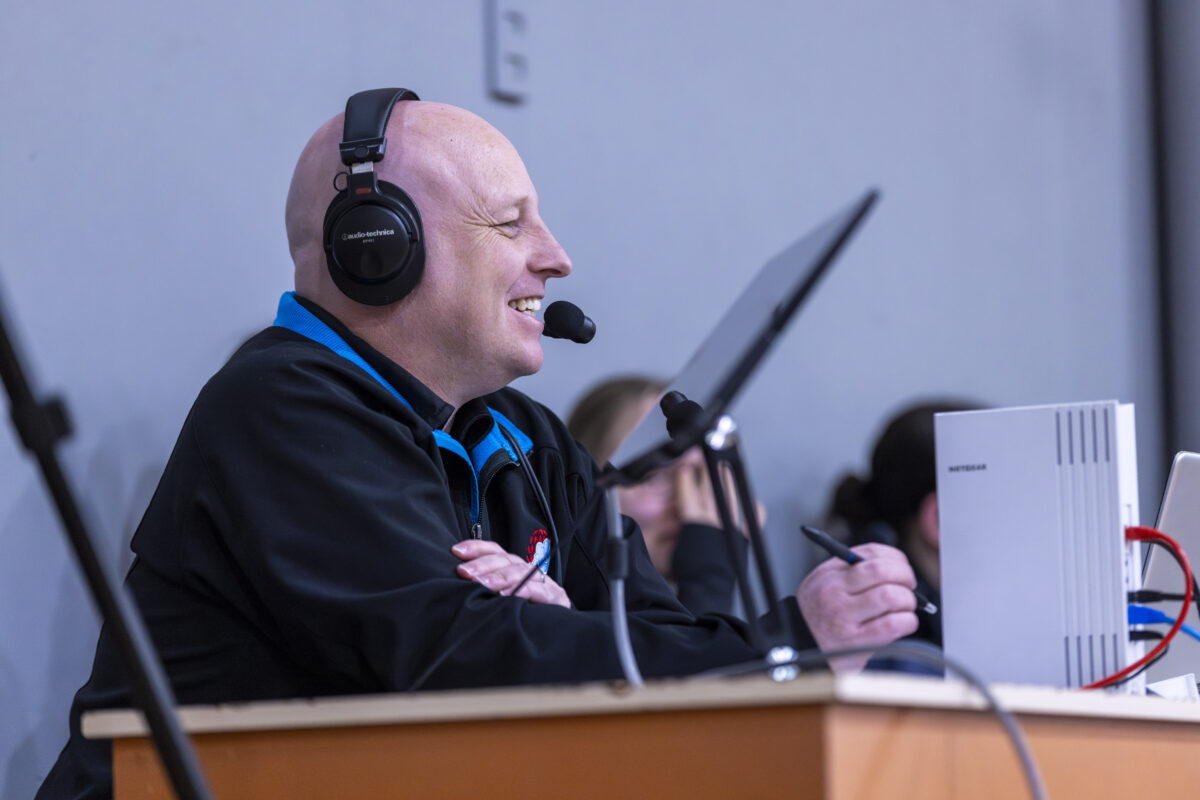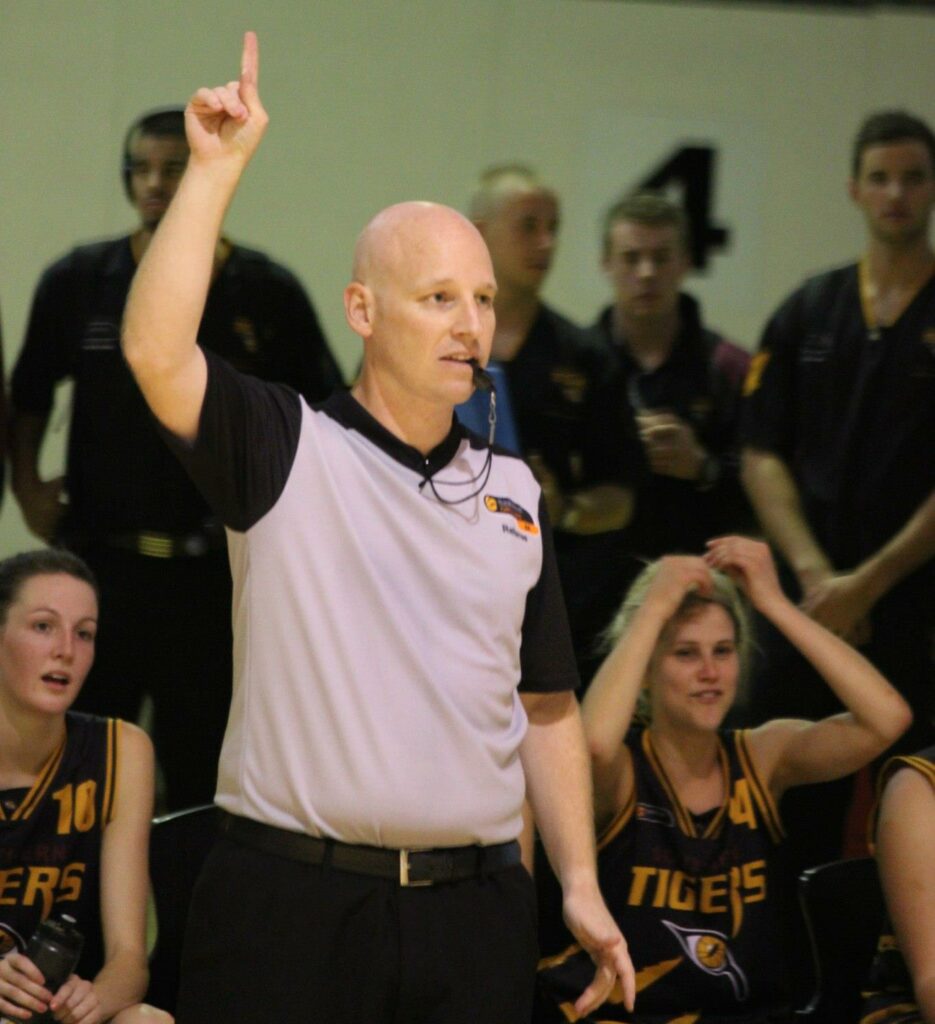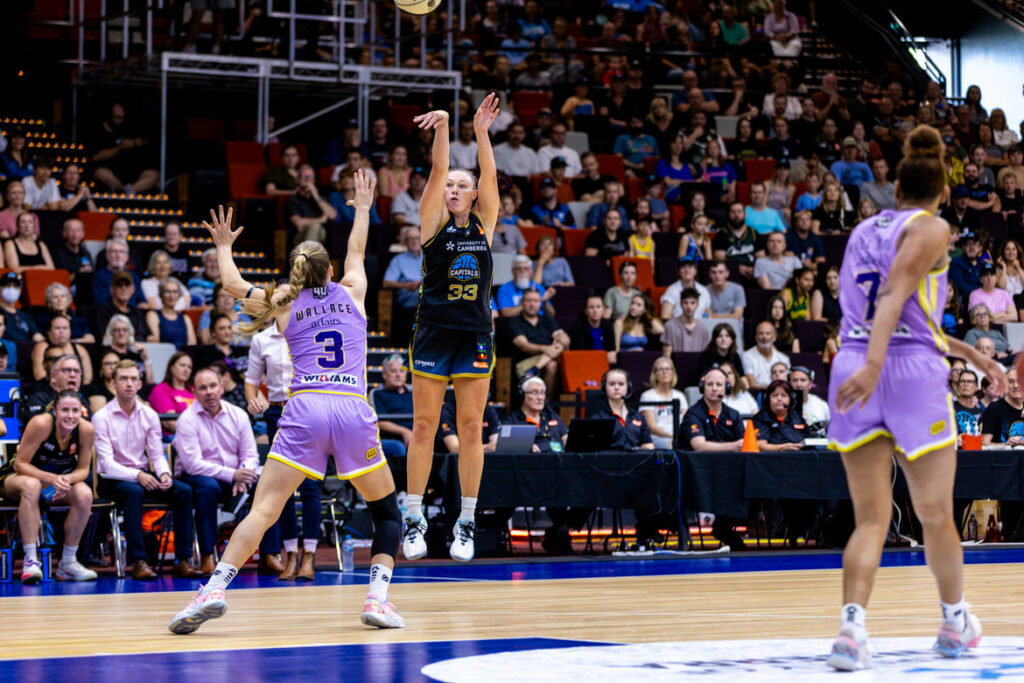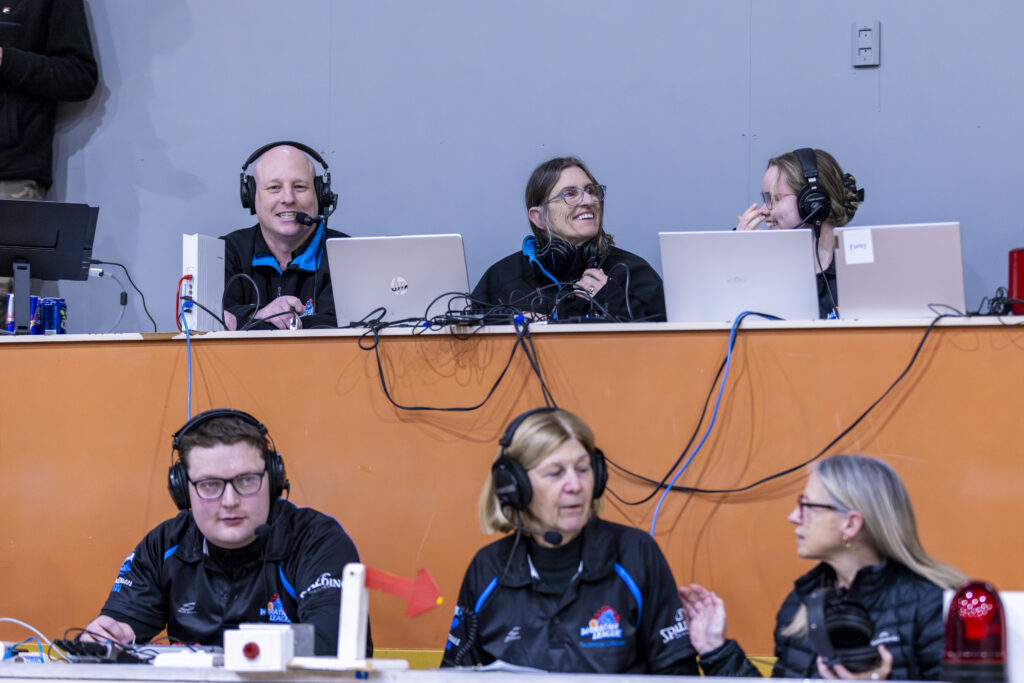LOCAL STATISTICIAN EARNS OLYMPIC BERTH

By BACT Media Unit – 25 July 2024
With the nation getting excited for the upcoming Paris Games, and the chance to see our Boomers and Opals strive for gold, one local will have the chance to represent the region on the world stage, thanks to a life long involvement in basketball.
Mark Harris has been involved in basketball from an early age, and after many years refereeing at the highest level, the chance to move into the much valued area of statistics, has seen Mark take the next step in his basketball journey.
Mark, who has been a statistician for over 20 years, was officially selected as a reviewer/evaluator for the Paris Games in 2024.
Basketball ACT caught up with Mark, prior to his games commitments, to find out more about what this selection means to Mark’s career and find out how he made his way to the top.
Q1 – Tell us a little bit about your own sporting background?
I grew up around basketball, as my parents refereed at the Waratah League level. I began playing in the Under 10s competition in Dubbo but soon realised I lacked the coordination of some other players. When I was 9, I started refereeing. Mum was refereeing a game by herself, so the referee coordinator suggested I grab a whistle and go and help.
I played socially and refereed for nearly 25 years, reaching the NBL1 level and attending three Under 18 National Championships. After an ankle injury in early 2016, I retired from top-level refereeing but occasionally referee to help out and keep the dream of getting back on the court more regularly alive.
I hold accreditations as a Level 1 Coach, Level 2 Referee Coach, Level 3 Referee, Scoretable official, and FIBA Statistician. Currently, I do both scoretable and stats for NBL1, Premier League and the WNBL and referee coach whenever possible.
Additionally, I have represented Tamworth in inline hockey and Newcastle in Volleyball. I am also a qualified Cricket and Volleyball umpire.

Q2 – When did your statisticians journey commence?
My journey as a statistician began in 2001 when I moved to Newcastle for university. I was already refereeing the Waratah League and working on the scoretable at the NBL1 level. Since scoretable and stats work closely together at this level, I took a Level 1 stats course to learn more about the process, and from there, I started doing both scoretable and stats.
Q3 – Tell us a bit about the pathway you have taken to get to this point?
I learned both manual and computer stats from the beginning, starting with practice games on paper to understand the basics such as shots made/missed, rebounds, turnovers, steals, and fouls. This experience, as an assistant coach, helped both the team and my understanding of the game.
I continued doing stats at the NBL1 level until 2009, working NBL games for the Hunter Pirates and various National Championships held in Newcastle and the Central Coast.
In August 2009, I moved to Broken Hill for work and remained on the Basketball NSW Stats contact list, although I didn’t regularly do stats again until moving to Queanbeyan in early 2019.
In 2020, I received an email from BACT seeking volunteers for stats and scoretable at the Under 20 Nationals. I volunteered for both but was mainly needed for stats. I participated in the Canberra Classic to regain my skills and then worked on scoretable and stats for the Nationals.
After the Nationals, I began doing stats for Premier League games and NBL1 games in Canberra in 2021. I earned my FIBA license and began working with the WNBL in the 2021-2022 season.
In 2022, I attended several Basketball Australia Statistician Committee meetings and became the 2IC for BACT stats. In this role, I collaborated with other committee members to develop and review documentation and training resources.
Some committee members were involved in stats reviews and evaluations for events like the Tokyo 2020 FIBA Women’s World Cup in Sydney 2022 and the FIBA Women’s Asia Cup in Sydney 2023. I couldn’t attend these events in person due to my son’s birth in February 2022, but remote involvement intrigued me.
In May 2024, FIBA requested a pool of Australian statisticians for summer events, including the Olympic Qualifying Tournaments, the Under 17 World Cup, and the Women’s World Cup. I applied and was accepted as one of five Australian statisticians in a pool of 18 worldwide. I completed games for the Under 17 World Cup and was selected as one of 14 reviewers for the 2024 Paris Olympics.

Q4 – What does training/preparations look like for a statistician as they get ready for a big tournament?
My role and preparation for these tournaments differ slightly from those of an in-venue statistician, but there are similarities. I participate in as many practice games as possible, either by watching and mentally calling the stats or setting up games to practice inputting on different stats systems. Fortunately, my 2-year-old enjoys watching basketball, which helps.
As a reviewer/evaluator, my job is to ensure the accuracy of the stats entered and identify areas of strength and weakness. We communicate with in-venue operators to make changes and review unclear situations. Feedback is then provided to FIBA and the reviewer group.
An introductory briefing covers how to access necessary information and communication methods. Preparation includes ensuring access to communication channels, streaming services, and information websites and getting to know the teams.
We receive the roster a couple of weeks in advance, allowing us to familiarise ourselves with the teams. This process is like scouting as a referee or coach, learning player names, numbers, positions, and identifying features. For example, Glenn Morison is number 12 and the starting centre for the Gunners, while Will Mayfield is number 8 and has broad shoulders. I also learn players’ tendencies, such as who plays point guard, who plays inside, and who frequently shoots 3-pointers.
For the Olympics, I will watch warm-up and qualifying tournament games for the teams I am assigned to. During the tournament, I will watch as many games as possible, balancing this with family and work commitments.
Q5 – You have been appointed to support some huge international events in 2024 – tell us about what your achievement means in terms of your future, opportunity and excitement levels?
Being appointed to support these major international events in 2024 is a tremendous honour and privilege. Participating in the Olympic Games is an opportunity I never imagined I would have, and I am incredibly excited to be involved.
I hope this opportunity will allow me to continue working with FIBA at the highest levels of competitions and tournaments. Expanding this role to other international and Australian tournaments would help develop and provide feedback to our statisticians on more games.
In the near future, I will remain involved in the NBL1 finals series, WNBL season, and Premier League games. I look forward to working with FIBA, Basketball Australia, the Basketball Australia Stats Committee, and BACT to further develop programs, roles, and resources to enhance our game.

Q6 – What advice do you have for someone thinking about becoming a statistician?
Go for it! I reached where I am by offering to help and learn more about the game. Volunteering for more games gives you valuable experience and enables you to improve quickly. Teams often appreciate this, especially in leagues where stats are not rostered. You can start with basic paper or computer stats on your own.
For referees, doing stats teaches you to observe the entire game and the whole play, enhancing off-ball awareness. For players and coaches, it offers insights into your performance and its impact on the game. For instance, you can track ball movement through assists, identify if you are being out-rebounded, or pinpoint where your shots are most effective.
As a statistician, you become part of the officials’ team and get the best seats in the house. Stay professional and flexible; you never know what games and opportunities might come your way. You could find yourself at an Olympics or World Cup!
Feel free to get in touch! We welcome anyone interested in learning more about the game. Join us at any game to see what’s involved.
Thanks Mark – well done on your selection, and all the best for the Games…!!!
(Photos courtesy of Mark Harris, Basketball ACT and Discovery One Photography)
To find out further information about becoming a statistician and upcoming Statistician Courses, you can click below:
Become A StatisticianIf you have any queries or questions relating to becoming a Statistician or about one of BACT’s Statistician Courses, please contact Basketball ACT at: